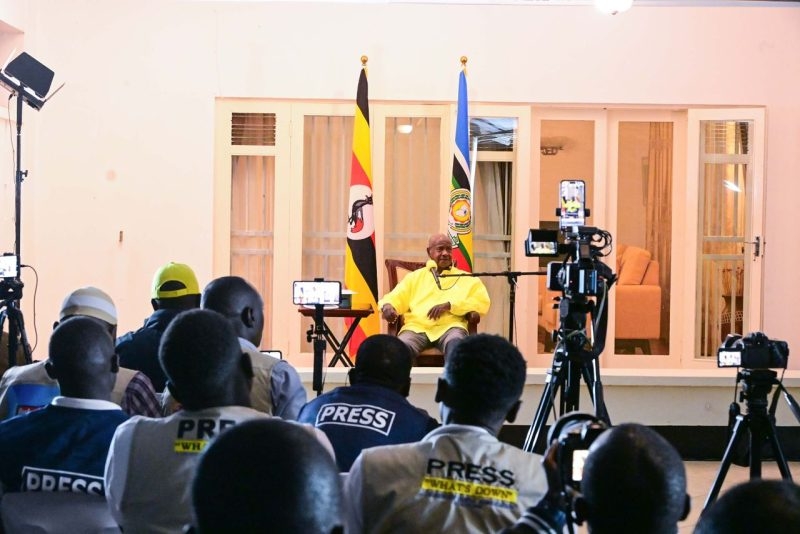

A late-night disagreement at a local pub in Kirumbi, Voi, turned violent and life-altering when David Gift Mwarashu allegedly struck a bouncer in the eye with a catapulted stone, leaving him permanently blind in one eye.
The dramatic incident occurred on the night of August 20, 2023, and has now culminated in a nine-year prison sentence for Mwarashu, following a conviction for grievous harm under Section 234 of the Penal Code.
The case, decided by the High Court in Voi on May 30, 2025, came after Mwarashu appealed his conviction and sentence by the Voi Chief Magistrate’s Court.
He had denied the charges, insisting he was a victim of mistaken identity and mob justice.
However, both the lower court and the appellate court found the evidence against him compelling.
The night of the attack
On the fateful night, the complainant, identified as Jason Mazai Mwakibola, was working as a bouncer at his father’s pub in Kirumbi.
Around 9 pm, a waiter informed him that a patron, later identified as Mwarashu, was attempting to leave without settling his bill.
Mwakibola approached the patron, accompanied by a waitress named Caroline.
What happened next was sudden and shocking.
According to multiple witnesses, Mwarashu stood in a dark corner of the pub, armed with a catapult.
Without warning, he aimed and launched a stone directly at Mwakibola’s face.
The projectile hit Mwakibola’s right eye with force, causing him to collapse.
The waitress quickly called the victim’s father, who rushed him to a hospital.
Medical reports confirmed the injury resulted in total blindness in the affected eye.
The violence of the act stunned witnesses and provoked a swift reaction.
Members of the public pursued Mwarashu and apprehended him at Rabai area.
He was dragged back to the pub, where a community policing officer, Ronald Mwandeghu, arrested him and escorted him to the local police station.
Eyewitness testimonies
The prosecution presented six witnesses, including the victim and his father, to support their case.
Their testimonies painted a consistent picture of how the attack unfolded.
One key witness described how Mwarashu had loitered around the pub before being confronted for failing to pay his bill.
It was in this confrontation that he turned violent.
The prosecution argued that Mwarashu was not only present but also well-known at the establishment, weakening his claims of mistaken identity.
The doctor who treated Mwakibola testified as the first prosecution witness.
He confirmed that Mwakibola had completely lost sight in his right eye due to the impact of the stone.
The injury was classified as grievous harm.
Another critical piece of evidence came from PW6, who produced the very tools used in the attack: the catapult, the stone, and even the cigarette packet that Mwarashu allegedly used to store the projectile.
Defence: A different story
Mwarashu offered a starkly different version of events.
He claimed he had gone to Mnazi Pub in Kirumbi to meet a friend named Sonko.
He denied drinking or causing any trouble.
According to him, as he was leaving, someone called out his name.
When he responded by asking the person to come over, he was instead slapped and had sand thrown in his eyes.
He claimed to have been attacked by intoxicated individuals and said he had no recollection of what happened next.
The following day, he found himself at the police station facing serious criminal charges.
In court, he argued that he was not properly identified and that the dim lighting conditions made it impossible for witnesses to see the attacker.
His lawyer also pointed out discrepancies in witness statements, such as confusion over the name of the pub, referred to by some as "Two Friends" and by others as "Two Flames."
Mwarashu also asked for leniency, citing that he was a first-time offender and had children depending on him.
He noted that he had already spent time in remand and that this should be considered in sentencing.
The Court’s ruling
Justice Asenath Ongeri, who presided over the appeal, dismissed the claims of mistaken identity.
She ruled that both Mwakibola and the waitress had interacted closely with Mwarashu that night, and the lighting, though dim, was adequate for recognition.
She also noted that Mwarashu was a familiar figure at the pub, strengthening the credibility of the witnesses.
The contradictions about the pub’s name were deemed minor and irrelevant to the substance of the case.
“The prosecution evidence established that the Appellant was positively identified as the perpetrator of the offence,” Justice Ongeri wrote in her ruling.
She further held that the prosecution had met the legal threshold to prove its case.
The attack was confirmed through medical evidence, physical exhibits and consistent eyewitness accounts.
“The complainant suffered grievous harm through the loss of sight in one eye, consistent with an attack using a catapult and stone,” she added.
Justice Ongeri also defended the nine-year sentence imposed by the lower court, noting that it was proportionate to the gravity of the offence.
She emphasised that grievous harm can attract a life sentence, and that the court had exercised leniency.
The court acknowledged the severity of the harm.
While Mwarashu had appealed for mercy based on his role as a father and first-time offender, the judge ruled that the “severity of the offence” outweighed those mitigating factors.
However, the judge did grant one concession.
She ordered that the time Mwarashu had already spent in remand be deducted from the nine-year sentence, in line with Section 333(2) of the Criminal Procedure Code.
Justice Ongeri concluded the ruling with finality: “The conviction was sound, and the sentence, though stern, was justified.”
“The appeal against conviction is dismissed. The appeal against sentence is partially allowed to the extent that the nine-year term shall be deemed to include the period already spent in remand,” the judge ruled.



















